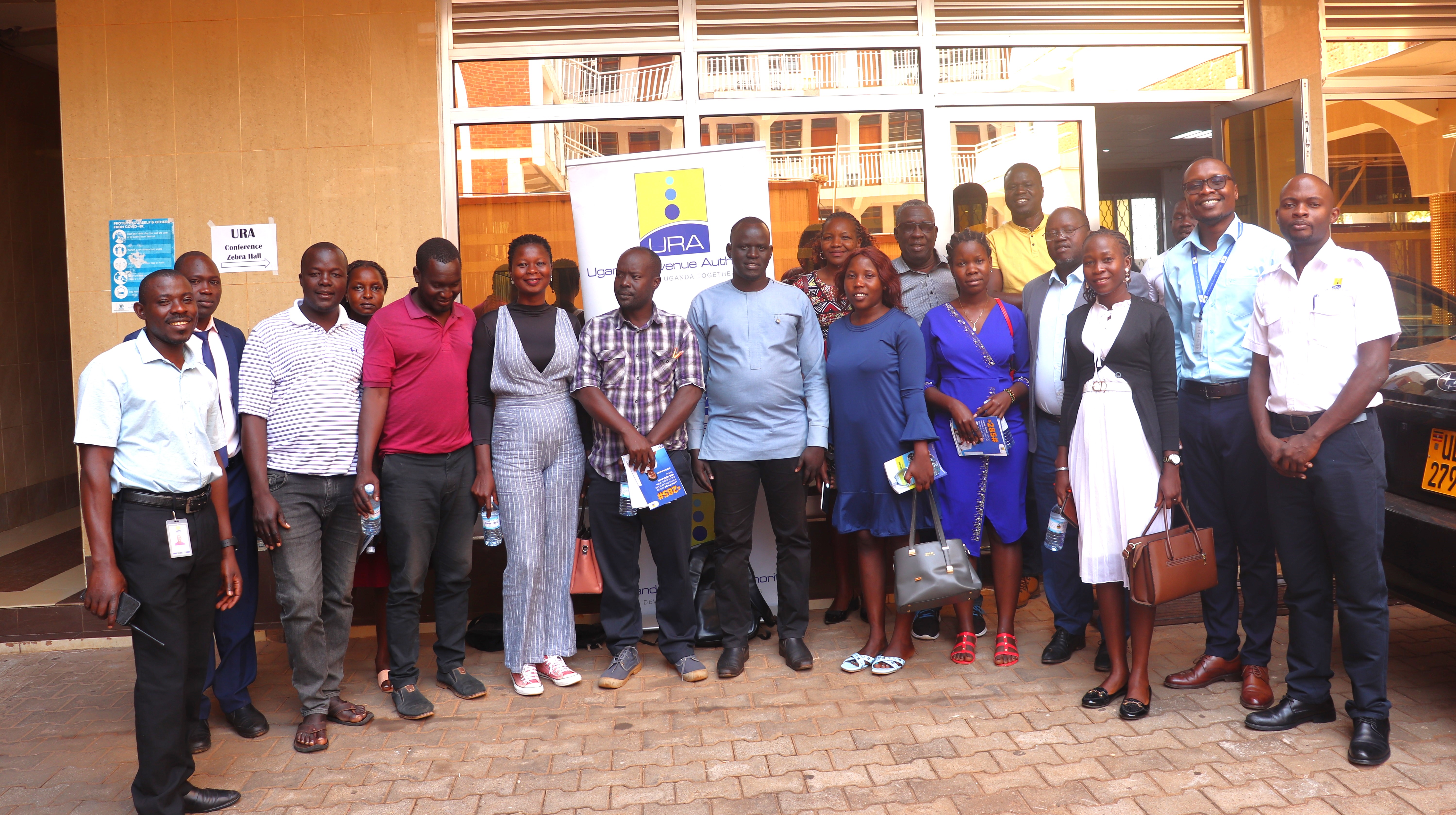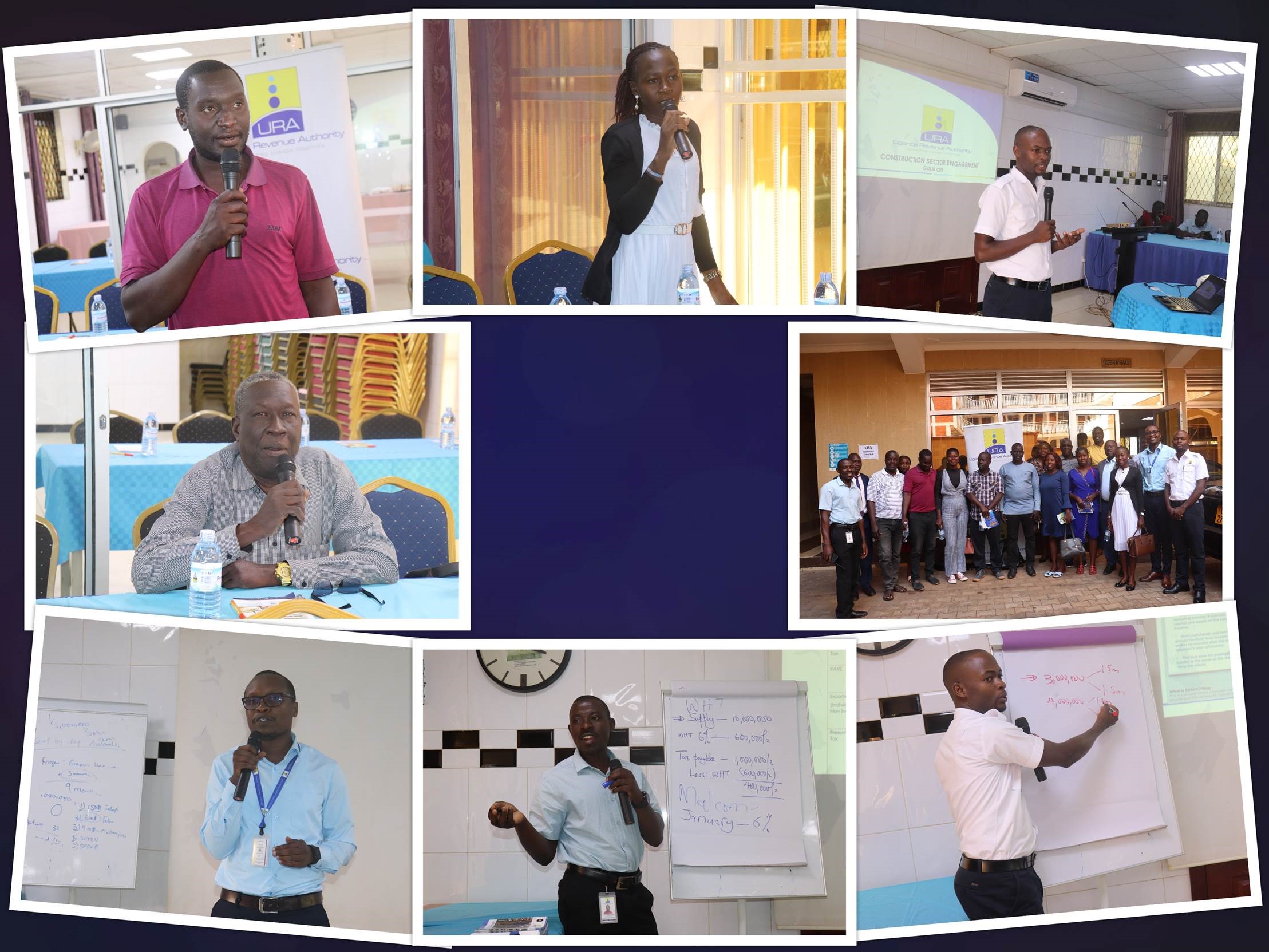
The Uganda Revenue Authority has conducted a tax education assignation with the construction and engineering sector in Gulu. The engagement was intended to enhance their compliance, refresh their tax knowledge in return filing and to address any tax related concerns that the constructors’ community may have with the taxman.
The engagement kicked off with the participants expressing their expectations that included how to amend their returns, invoice errors, and how URA plans to facilitate trade in the construction sector so as to support their businesses to thrive.
Andrew Kyakonye, the team lead educator took taxpayers through return filing breaking down the different returns such as provisional return, monthly return, and the new web-based VAT return forms currently in use.
In addition, Andrew re-echoed to taxpayers the importance of filing and paying tax returns, taking advantage of amendments in case of errors made as well as ensuring that they provide the right data to avoid inconveniences from the taxman.
“As you work out your marketing plans, and funding sources for your company, don’t forget to also do tax planning. It is very important to plan to pay taxes, it shouldn’t be incidental when running a business,” said Kyakonye.
Otim Charo, the managing director of Chordway Consult(U) Limited raised a concern of what happens if the tax predictions made by a taxpayer in the provisional return are inaccurate.
Lukyamuzi Ponsiano, domestic tax officer, Gulu Office, responded stating that if there’s a loss, the taxpayer is required to make amendments in the return and if it’s a surplus, then the actual tax is deducted and the excess funds become credit of the taxpayer which URA will offset in the subsequent returns submitted.
While Lalwedo Rebecca of Got Apwoyo Construction and engineering services limited asked whether URA quality assures construction projects and if so, how do they do it.
Regional Manager, Arthur Akol, explained that URA doesn’t test the quality of projects but instead tests the construction materials imported for tax purposes.
“The scientists at URA are there to ascertain that your materials are assessed for the correct tax implications to close revenue leakages, quality assurance is done by other government agencies,” said Akol.
The engagement provided a platform for feedback to URA to improve on their service delivery, customer care, and support which the URA team pledged to do better and in case of incidents, encouraged taxpayers to report through URA contacts.
“As URA, we have adopted the Client Relationship Model where every taxpayer is attached to a tax officer, this is to ensure a good working relationship with our clients,” reiterated Akol.
Similar sector-based engagements are ongoing in Gulu and Kitgum for the next two weeks.
By Elizabeth Nakiru






No Comments yet!